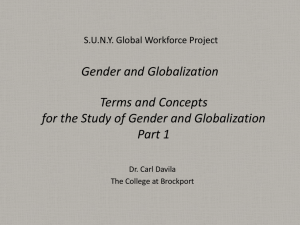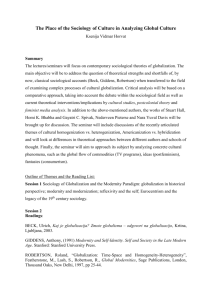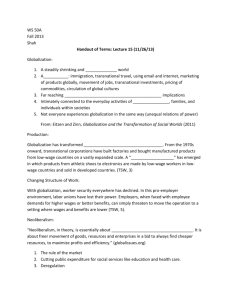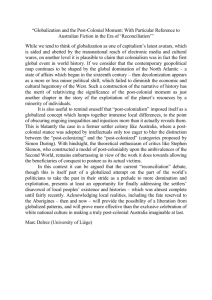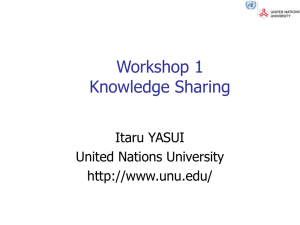The Environment of Global Community, a Question of cost vs. Benefit
advertisement
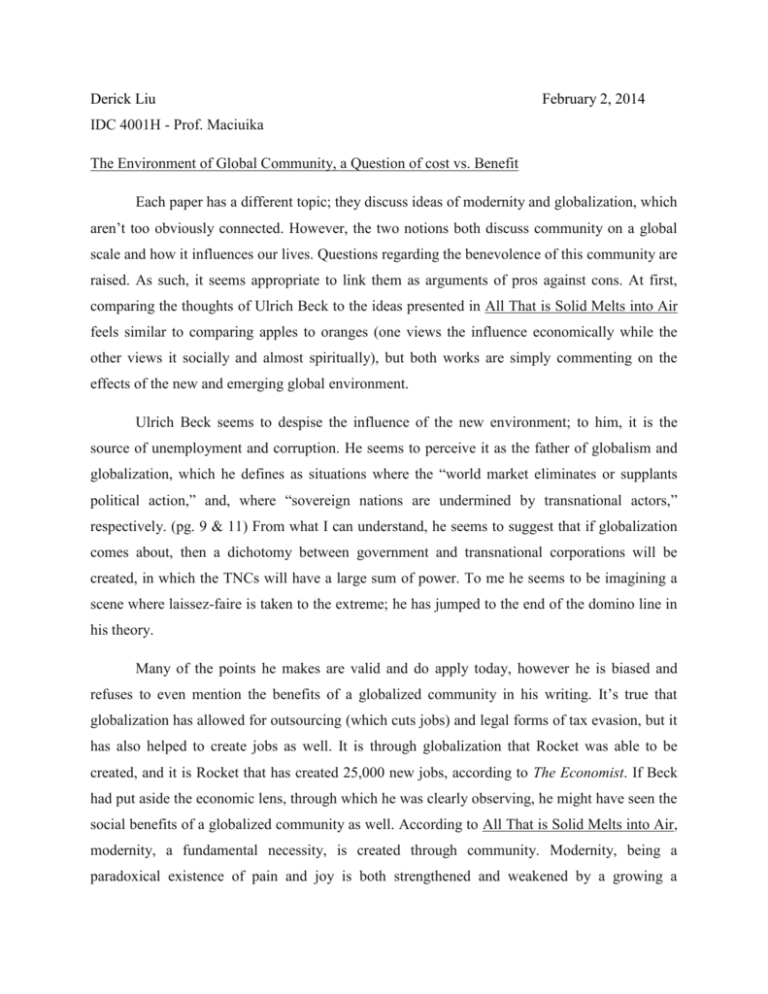
Derick Liu February 2, 2014 IDC 4001H - Prof. Maciuika The Environment of Global Community, a Question of cost vs. Benefit Each paper has a different topic; they discuss ideas of modernity and globalization, which aren’t too obviously connected. However, the two notions both discuss community on a global scale and how it influences our lives. Questions regarding the benevolence of this community are raised. As such, it seems appropriate to link them as arguments of pros against cons. At first, comparing the thoughts of Ulrich Beck to the ideas presented in All That is Solid Melts into Air feels similar to comparing apples to oranges (one views the influence economically while the other views it socially and almost spiritually), but both works are simply commenting on the effects of the new and emerging global environment. Ulrich Beck seems to despise the influence of the new environment; to him, it is the source of unemployment and corruption. He seems to perceive it as the father of globalism and globalization, which he defines as situations where the “world market eliminates or supplants political action,” and, where “sovereign nations are undermined by transnational actors,” respectively. (pg. 9 & 11) From what I can understand, he seems to suggest that if globalization comes about, then a dichotomy between government and transnational corporations will be created, in which the TNCs will have a large sum of power. To me he seems to be imagining a scene where laissez-faire is taken to the extreme; he has jumped to the end of the domino line in his theory. Many of the points he makes are valid and do apply today, however he is biased and refuses to even mention the benefits of a globalized community in his writing. It’s true that globalization has allowed for outsourcing (which cuts jobs) and legal forms of tax evasion, but it has also helped to create jobs as well. It is through globalization that Rocket was able to be created, and it is Rocket that has created 25,000 new jobs, according to The Economist. If Beck had put aside the economic lens, through which he was clearly observing, he might have seen the social benefits of a globalized community as well. According to All That is Solid Melts into Air, modernity, a fundamental necessity, is created through community. Modernity, being a paradoxical existence of pain and joy is both strengthened and weakened by a growing a community, but that is the essence of modernity, so it seems that in the end it is benefited by the globalizing environment. Both readings seem to be arguing a point on the increasing strength of the global community. They seem to fight to point out the strengths and weaknesses of a globalized society and world. For this reason it seems best to link them as evidence and claims for separate sides of an argument, while our role is to answer the question being argued – is globalization worth it?


